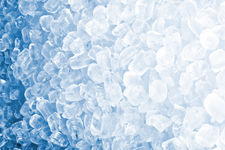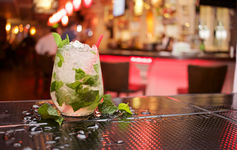Crushed Ice
Frozen drinking water in the form of ice (crushed ice) is a popular foodstuff. It is used, for example, in cocktails, in food production for many different products or in supermarket refrigerated counters to cool food.
We provide you with professional support with the microbiological testing of crushed ice in order to meet the criteria for food safety and process hygiene for in-house self-monitoring.
Services

Water Analysis Standard
E. coli, coliform bacteria, colony count 22°C, colony count 36°C, Enterococci
Water Analysis Standard
Whether it is ice for the catering trade, for food production (e.g. saussages) or for cooling fresh fish and seafood - our accredited test laboratory analyzes your crushed ice for microbial contamination. The scope of testing is based on drinking water standards, with a focus on microbiological parameters.
Contact us for a quick assessment.
The analysis contains the following parameters:
-
E. coli
-
Coliform Bacteria
-
Colony count 22°C
-
Colony count 36°C
-
Enterococci
Product description
Do you have any questions? Do you need a different analysis or more analysis parameters?
Contact us to discuss your requirements.
FAQ
Why should crushed ice be investigated for contamination?
Crushed ice should be tested microbiologically to ensure food safety and consumer protection. Although drinking water is used for production, contamination can occur during production, storage and handling. The tests are used to detect hygiene indicators and potentially harmful bacteria, such as E. coli or Enterococci. They help to check compliance with legal requirements and monitor the effectiveness of hygiene measures. Regular tests ensure that the ice meets the requirements of drinking water and food hygiene regulations and is therefore safe for consumption.
Who should have crushed ice tested?
The following groups should have crushed ice tested:
-
Food service establishments that produce ice cubes or crushed ice themselves.
-
Food businesses that use or sell crushed ice, including butchers, bakeries, restaurants and bistros, retailers, fish farmers with their own smokehouse.
The tests are part of the company's self-inspection and should be carried out regularly to ensure that the ice is microbiologically safe. This is particularly important as unwanted contamination can occur during production, storage and handling, even when drinking water is used.
In addition, the competent authorities carry out random checks as part of official food monitoring, as for example in the Federal Monitoring Plan 2022 of the Federal Office for Consumer Protection and Food Safety in Germany.
Contact
Like what you see? Contact us today to discuss your water analysis needs!
Ready to place an order?




